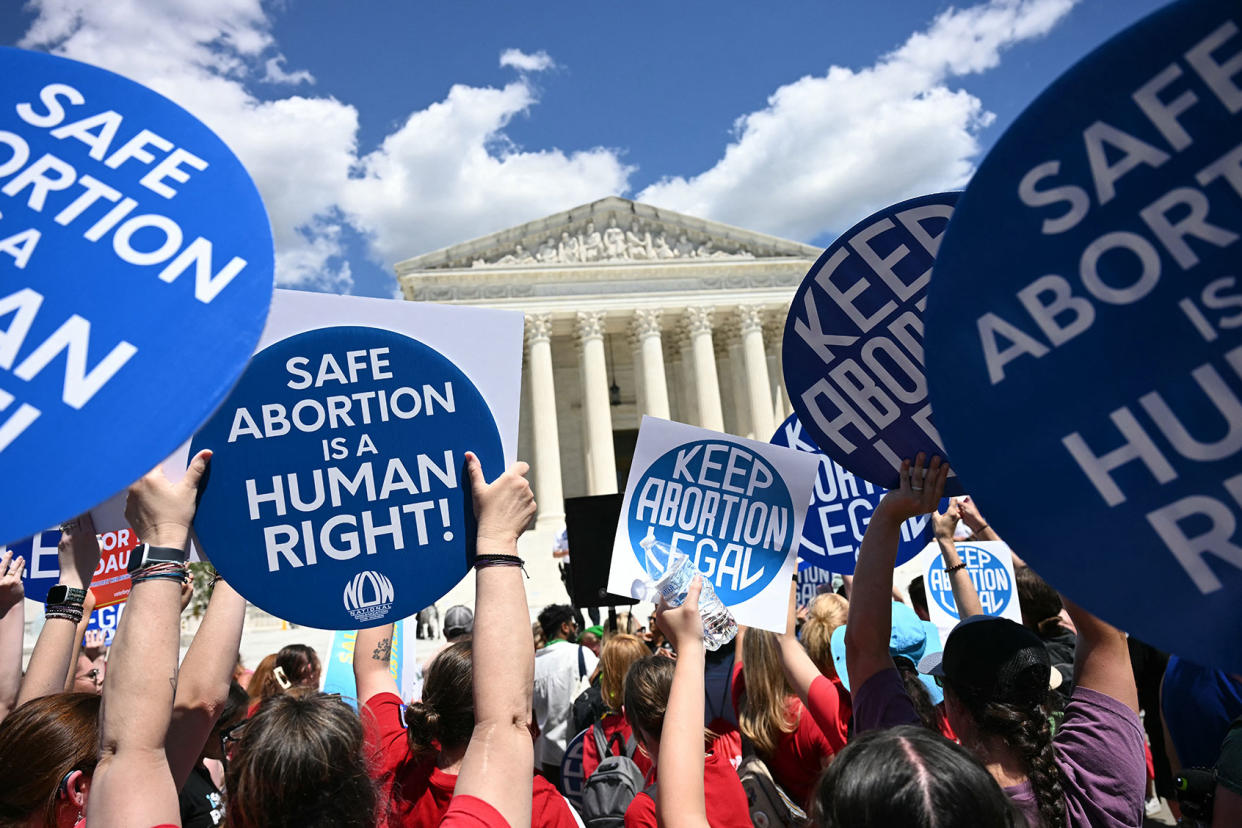"It's not just about abortion": How the Chevron ruling could unravel reproductive rights

In April the Equal Employment Opportunity Commission (EEOC) finalized its Pregnant Workers Fairness Act (PWFA) regulations, after being criticized by conservative lawmakers and religious organizations. Part of the update included a clarification that accommodations, like a leave of absence, applied to abortion care. But now since the U.S. Supreme Court overturned the Chevron deference, which made it possible for Congress to rely on federal expertise when implementing a wide range of policy measures, conservative judges in lower courts can seek to reverse expert policies for ideological reasons — and that applies to policies regarding reproductive care.
As reported by Bloomberg Law this week, a coalition of 17 Republican attorneys general told a federal appeals court that the recent decision to overturn the Chevron deference should bring back their challenge to the EEOC’s pregnancy regulation. In other words, they’re trying to leverage the Chevron ruling to remove the EEOC’s approved leave of absence for abortion care. The move appears to be part of a more comprehensive anti-abortion plan to lean on the Chevron ruling to dismantle reproductive rights further.
“A Chevron ruling says that government regulations, or when the agency passes a rule, if it is not strictly required by the statute that Congress passed, then a court may invalidate the rule,” David S. Cohen, a professor of law at Drexel Kline's School of Law, explained to Salon. Previously, it was up to the agency to determine clarity in cases where there was “vague language from Congress.” But the ruling in the Chevron case says now it's up to the judges to answer that question. Depending on the judge, the decision could be made through an ideological lens.
That's not the only possible threat to reproductive health care. Cohen provided Salon with another example: under Obamacare, preventative medicine must be covered, which includes birth control.
“Now, the conservative federal judiciary might say birth control, under our reading of the statute is not preventive medicine, so the agency went too far in requiring birth control,” Cohen said. “It used to be that the agency got a lot of deference. Preventive medicine is broad, it’s vague, so it's up to the agency to determine what the rule is when you've got vague language from Congress.”
But now it’s up to the judges.
In late June, the U.S. Supreme Court voted along party lines in a historic decision against the government in a pair of cases — Loper Bright Enterprises v. Raimondo and Relentless, Inc. v. Department of Commerce. The ruling set a precedent of gutting the power of regulatory agencies to protect the environment and consumers. Gautham Rao, a professor of legal history at American University, told Salon at the time that the case had "historic implications" as an attack "on what we call the administrative state." Reproductive rights advocates worry that the implications will extend beyond environmental protections.
Leila Abolfazli, director of National Abortion Strategy at the National Women's Law Center Action Fund, told Salon she fully expects conservative justices to now start making claims that due to the decision in the Loper Bright case, some regulations related to reproductive rights can be revisited by the lower courts instead of federal agencies.
“But I will say that, with or without Loper Bright, the parties were making these claims, and some courts were open to them,” Abolfazli said. “But Loper Bright certainly gives them sights and saying, ‘No we get to decide what the law is, and it's XYZ, not what the administration said.’”
The Alliance Defending Freedom, the conservative Christian legal advocacy group that argued against the FDA’s approval of mifepristone and lost, filed an amicus brief for the Loper Bright case that outlined how a ruling to overturn the Chevron deference could unravel access to abortion care. In the amicus brief, ADF argues that “agencies are weaponizing federal healthcare laws to violate the right to life.” It specifically called out Title X, EMTALA covering life-saving abortion care, and the mail delivery of mifepristone. It also called out a range of agencies like the EEOC, for “forcing employers to pay for puberty blockers, cross-sex hormones and amputating healthy organs.”
“ADF definitely has a full, comprehensive plan on how it wants to take down abortion and other reproductive health care,” Abolfazli said.
In regards to the Pregnant Workers Fairness Act, that litigation will likely continue, Abolfazli said.
“But I think there's an overarching comment here on how destabilizing the Supreme Court is right now. They are making these grand, sweeping decisions, overturning precedent and then not providing the rules of engagement,” Abolfazli said.
Cohen said that leveraging the Chevron case to unravel reproductive rights is yet another example that the “anti-abortion movement is not stopping at abortion.”
“They are looking to do anything to restrict family planning, sexual health, reproductive health. It's not just about abortion,” Cohen said. “This is about anything related to sexual reproductive health and women's health too.”

